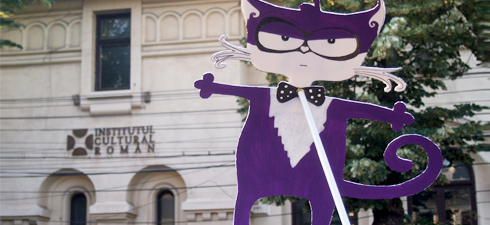Veni vidi vici. Having arrived in office after long and frustrating stints on the opposition benches, the three government leaders in Budapest, Bucharest and Kiev [respectively Prime Minister Viktor Orbán, Prime Minister Victor Ponta and President Viktor Yanukovych] are remarkable not only for the fact that they share a common firstname, but also because their behaviour is governed by identical reflexes. All three appear intent on holding on to the reins of power for some time to come. And all three have launched vengeful purges.
In Ukraine, Viktor Yanukovych has succeeded in resolving all of the problems posed by general elections (slated for October 2012) in one fell swoop by simply imprisoning all of the leaders of the opposition, including Yulia Tymoshenko.
In Hungary, in a manoeuvre that can hardly be described as democratic, Orbán has used his overwhelming majority in the country’s right-wing parliament to push through measures that have allowed him to gain almost total control of the media and a potential stranglehold over press freedom, and also to modify the constitution so as to ensure that it will be very difficult to deprive him of his new toy.
A purge reminiscent of the Stalinist era
In Romania, where the centre-right has been routed [the Democratic Liberal Party was forced out of government by a vote of no confidence in April and subsequently trounced in local elections on 17 June], the left has been quick to set aside the customary Romanian political goal of urbanisation [in the sense of greater ties with Europe] to instead set its sights on the "Orbánisation" of the country.
In the light of a succession of mistakes, blunders, and anti-democratic measures, the professional competence of the new government has increasingly been called into question. At the same time, the list of renowned experts and highly qualified people who have dismissed from their posts since Ponta was appointed on 7 May has grown longer and longer. In short, we have been treated to a purge, which has been implemented with a rapidity and a cruelty that are sadly reminiscent of the Stalinist era.
The first to be evicted in the course of this purge was the director of the National Archives, Dorin Dobrincu: a doctor of history to whom we owe a debt for his study of the Holocaust in Romania, and more critically for his management of the Communist Party and Central Committee archives which he made fully open both to researchers and the general public. Suffice it to say that during his time as director, access to the archives was equitable, egalitarian and universal, which was no negligible achievement.
Monumental mistakes
Thereafter we were treated to the dismissal of the senior management of the public television network. And right now, the fate of the directors of the Romanian Cultural Institute hangs in the balance. On 13 June, the new government enacted a decree to place the board of this institution, which for several years has been impeccably managed by the philosopher Horia Roman Patapievici, under the supervision of the Senate (whereas in the past it was under the nominal authority of the president).
In the light of the growing list of victims in this war waged on professional competence and in the context of Brussels’ feeble response to the excesses of the Hungarian prime minister, it appears that Ponta has not only set out to '“Orbánise” Romania, but in fact intends to go even further than his colleague in Budapest.
Victor Ponta and his henchmen are not just power hungry and obsessed with holding on to political office, it appears that they also intend to undermine the aspirations and the interests of their own nation by imitating all of the monumental mistakes committed in the course of the restoration of the communist-authoritarian government in Kiev [by President Viktor Yanukovych], which will seriously damage democracy in this country. As Romanians, we will soon be forced to count the cost of these excesses when we have to contend with the rapid deterioration of the image of this country and its isolation within the European Union and the world at large.
Reaction
Intellectuals up in arms
On 13 June, the government enacted a decree to modify the law which regulates the operation of the Romanian Cultural Institute (ICR). The organisation which is tasked with the promotion of Romanian culture worldwide has now been placed under the authority of the country’s Senate. Previously it was under the nominal control of the Romanian president.
The decision has prompted an outraged response in Romanian artistic and intellectual circles, and in particular from film director Cristian Mungiu, whose recent film Beyond the Hills won several awards in this year’s Cannes Film Festival.
For Mungiu and others, the government has embarked on a “disgraceful purge” of Romania’s cultural institutions. "With a single gesture, Romania’s network of 17 cultural institutes – in cities such as Paris, New York, Venice, and Berlin — will be downgraded to become antennae for the promotion of basic culture, while we will be cast in the role of hopeless provincials," writes Dilema Veche —
Of course, this is just one episode in a saga of regime change played out in public institutions (which comes on hot on the heels of the dismissal of 36 elected prefects) that is repeated with the arrival of every new government, but it also demonstrates a complete disregard for the immense effort that has been made to keep Romania on the cultural map of the world.
Was this article useful? If so we are delighted!
It is freely available because we believe that the right to free and independent information is essential for democracy. But this right is not guaranteed forever, and independence comes at a cost. We need your support in order to continue publishing independent, multilingual news for all Europeans.
Discover our subscription offers and their exclusive benefits and become a member of our community now!












